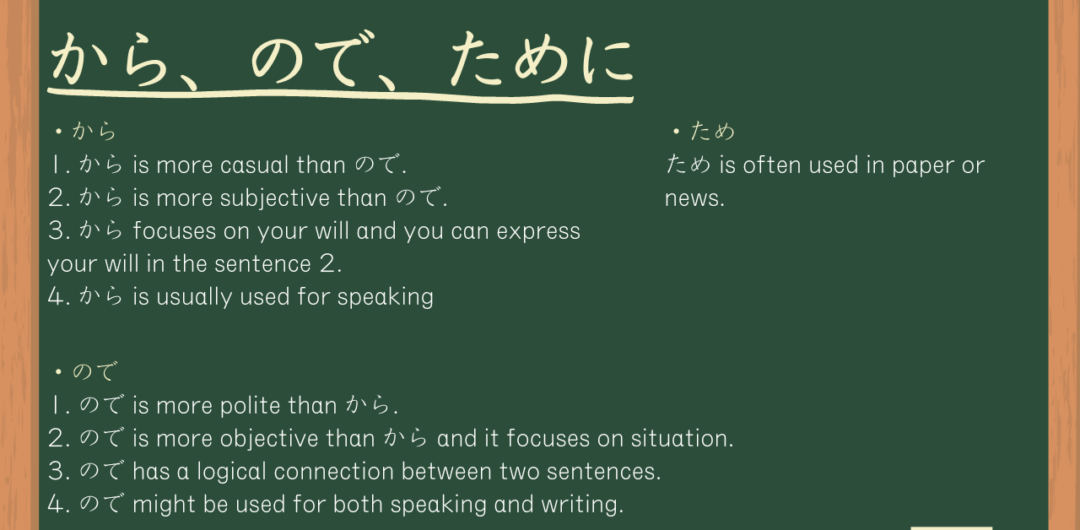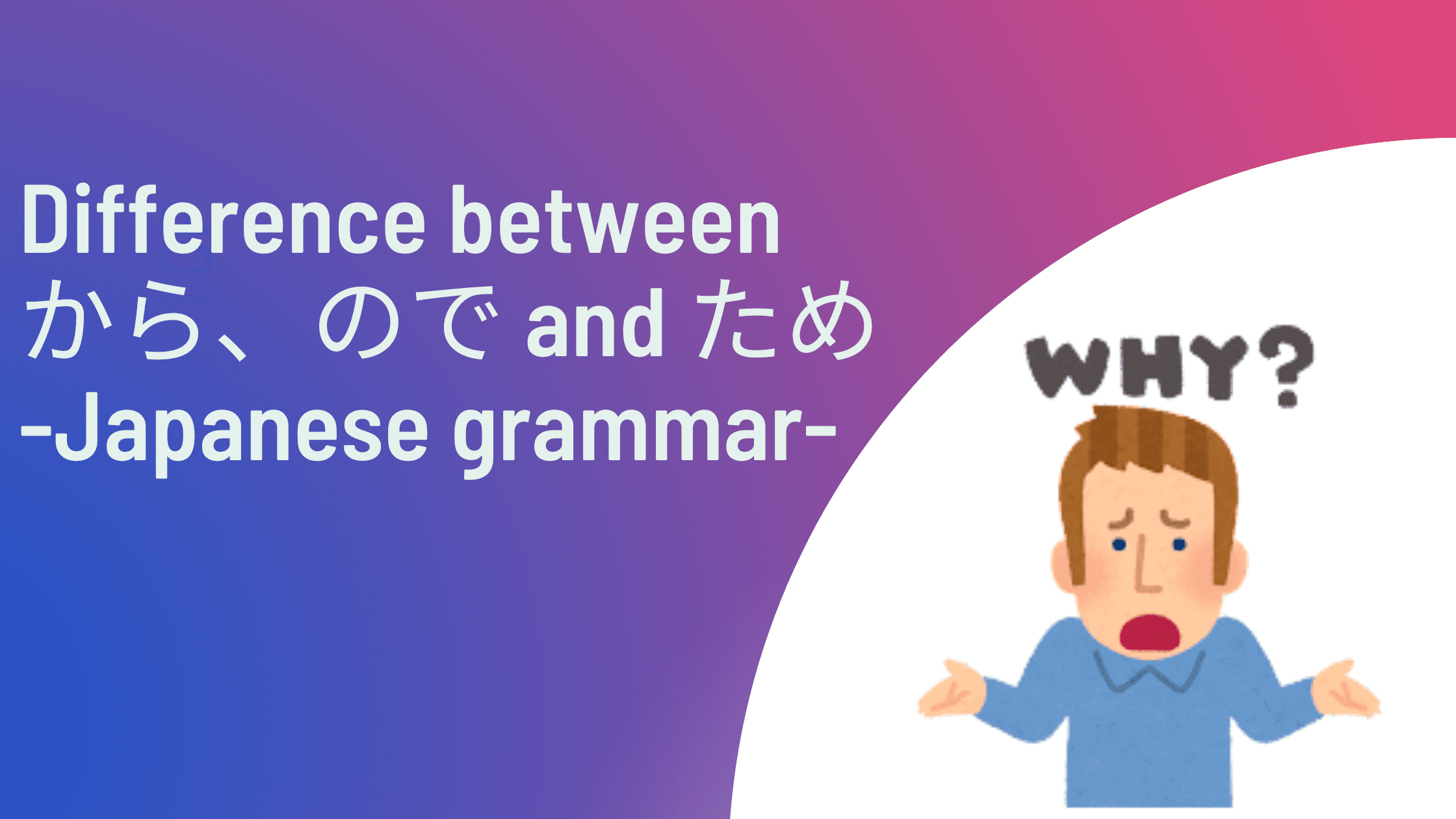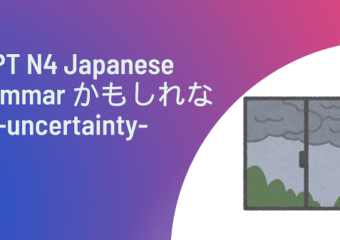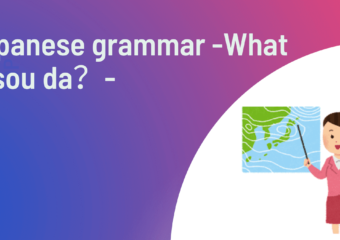When we explain a reason, we usually use から、ので、ため.
For example, if you say the game has been canceled due to rain, you could say…
雨だから、しあいは ちゅうしに なりました。
雨なので、しあいは ちゅうしに なりました。
雨のため、しあいは ちゅうしに なりました。
Would you like to know the difference?
When you read this article, you will understand what the difference is between these three words.
*Are you looking for a place to practice Japanese?
Youtonihongo is for you.
You may receive one free 30-minute trial lesson.

The free trial class online
We offer online classes and in person classes
から
We use から when we want to talk about a cause or reason.
A reason +から+situation
雨だから (reason) キャンプはちゅうしです。(situation)
Let’s see some differences between ので and から.
1. から is more casual than ので.
2. から is more subjective than ので.
3. から focuses on your will and you can express your will in the second part of the sentence.
4. から is usually used for speaking
I will explain about these cases with an example.
English:It’s raining, so the game will be canceled.
This sentence sounds casual.
Probably, parents or teachers want to explain the reason why the game was canceled to the children.
English:I was tired today, so I’m going to bed early.
The speaker feels tired, which is a very subjective opinion.
In this case, we usually use から.
English:I’m in a hurry, so please hurry up.
Like this sentence, you can use the words of your will after から such as an order, suggestion sentence, or request sentence.
から is more subjective and it focus on your will, so it sometimes sounds selfish.
* If the second part of the sentence is polite form, you can use ので too.
English:I’m in a hurry, so please hurry up.
ので
We use ので to talk about a reason like から.
A reason +ので+situation
ので usually connects with plain form.
N/ナadj+なので。
(ex) 雨なので、キャンプはちゅうしです。
Plain form+なので。
(ex)えきがとおいので、ふべんです。
Let’s see some differences from から and ので.
1. ので is more polite than から.
2. ので is more objective than から and it focuses on situation.
3. ので has a logical connection between the two sentences.
4. ので might be used for both speaking and writing.
I will explain about these cases with an example.
English:It’s raining, so the game will be canceled.
In this example you are talking to adults, so you would use ので in this case.
* Also, this sentence explains the situation and it is objective, so ので is more likely to be used.
English:I have a fever, so I will be absent.
In this case, you explain your situation that you have a fever, which is an objective situation.
If you use から, it focuses on your feeling that you want to be absent, which is not nice in Japanese culture.
から is also more subjective and less polite, so you are better off avoiding using から in this case.
I will give you one more example to understand the difference between から and ので clearly.
There was an animation movie scene.
A boy helps a girl run away from a murder.
She asks him why he risks his life to save her.
He answers that すきだからだよ。おまえのことがすきだからだよ。せかいじゅうのだれよりも.
Because I love you. I love you more than any other in the world.
This sentence is subjective and focuses on his feeling.
Therefore, using から is much better than using ので.
If he used ので, she wouldn’t feel as moved because ので is logical rather than feeling.
ため
ため is often used in paper or news.
Therefore, it gives the impression of seriousness.
ため is also used more for writing rather than speaking.
Conjugation
ふつうけい+ため
めいし+のため
English:It’s raining, so the game will be canceled.
This information might be for the spectators.
Like this case, we use ために to give information to an unspecified number of people.
conclusion

から
We use から when we want to talk about a cause or reason.
A reason +から+situation
ので
We use ので to talk about a reason like から.
A reason +ので+situation
ので usually connects with plain form.
N/ナadj+なので。
Plain form+なので。
ため
ため is often used in paper or news.
Conjugation
ふつうけい+ため
めいし+のため
If you have questions, please comment below.
If you’d like to learn more Japanese, please feel free to contact me.
I teach Japanese in-person or online.
You can also learn Japanese on my Instagram page.

The free trial class online
We offer online classes and in person classes



